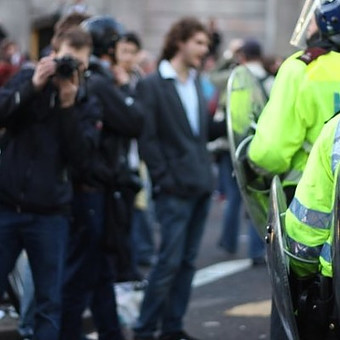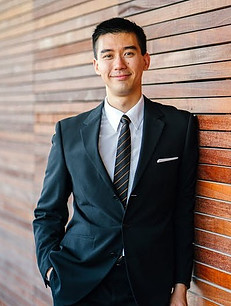Currently Empty: $0.00

Conflict Resolution; A security officers duties and responsibilities
 Conflict Resolution
Conflict Resolution
A security officer you’re on the job responsibilities will often cause you to come into contact with the public. Remaining calm and professional will ordinarily make these encounters stress free. However, occasionally the situation may result in a conflict between you and another person or persons.
Your goal in dealing with people should be to persuade them to voluntary comply with your directive. In order to do this, you have to get them to do what they originally did not want to do.
The best way to gain their cooperation is through the use of effective professional language.
Before dealing with the public, begin by examining yourself as a security officer.
Know Yourself A Security Officer
- Appearance
Your presence alone has the ability to alter behavior. First impressions should be at a professional level. Keep your uniform clean and pressed. Assure that you are well groomed, clean, with hair and nails trimmed. You should be somewhat physically fit. Have good posture.
- Conduct
How you carry yourself- with confidence, anger or fear, these things can be detected by others. Your voice should be clear and calm, with appropriate language. Train yourself to deflect (ignore) rude comments. By maintaining a professional demeanor you are more likely to resolve the problem.
- Triggers
All of us have certain expressions or phrases that serve to “trigger” us to react with anger, humiliation, prejudice, etc. This can be as simple as “
You can’t make me!” Recognize your triggers. Write them down.When a security guard is confronted with one of these verbal assaults- recognize it and do not react. By reacting you will escalate the problem and allow your personal self to take over the situation.

The Public
- Types of people
There are two basic types of people you will encounter through work. The first will respond to your authority by complying readily with your request. The second type will challenge you. This is not usually personal, they simply do not routinely respond to authority. These people are not rule followers, they will ask, “Why?” This opens a dialogue and requires further attention from the guard.
- Respect
All types of people deserve your respect. You always begin any dialogue where you are seeking voluntary compliance by issuing a request. You do not demand but simply ask the person
Face to Face
- Professional Face
A security officer you are going to come into contact with people from all walks of life on a daily basis. You will not only be representing yourself to the public but you will be representing your guard company and your client. Every time you open your mouth you will be speaking for your boss, the company manager, and everyone else in the organization. If someone in your company treats people poorly he lowers your credibility and the credibility of everyone else in your company. This type of conduct makes an other security guards job more difficult. Any confrontation is not about the guard personally; therefore, all security guards must leave your personal feelings at home.
- Listen Before you Speak
When dealing with the public a guard must also be able to read the person you are dealing with. That person may be under some kind of influence they may be under the influence of alcohol, drugs, or just a misunderstanding, or they may have other issues, such as anger, depression, etc.
Therefore, a guard are going to have to listen to them carefully- what they say and how they says it.When a security guard is interacting with someone who may be under an adverse influence a guard may have to think for that person. They may not be able to think rationally for themselves at the present time. A guards actions will have to be in terms and language that they will understand.
- Be Assertive, Know What You’re Talking About
In order to communicate effectively with someone, a security guard must put what they say in the most proper, fitting, and assertive words possible. This process does not have to be difficult; a guard can simplify it by using the following elements.
a. Know what you are talking about. Think about what you want and need to communicate.
b. Put your thoughts into words that reflect your meaning.
c.When a security guard is you know what you want to say and have chosen the proper words you are ready to send, or transmit your message.
One thing to remember: communication is accomplished primarily through nonverbal signals (facial expressions, body language, etc.) and tone of voice. The words of the message have the least influence.


A persons’ history ‘or ‘background’ will determine how that person hears the message.
- Each person has different experiences to relate to in a given situation. What might work for an elderly person may not work for a young corporate executive.
The language a guard uses when talking to a socialite would be totally different from what they might use for a gang member or skateboarder. The guard may be transmitting the same message, but the words may have an entirely different meaning for people with widely differing backgrounds.
Recognize that there are some phrases that don’t work in a conflict. For instance, telling someone to “calm down” is a wasted effort. Instead, one can get someone to calm down by assuring them that they will help them solve their problem and by speaking slower and a lower voice would be helpful. “Because I said so” won’t work on a stranger any better than it works on your teenager.
- Saving Face
During times of conflict is important to try to always allow the other person a way to “save face.” The easiest way to do this is rather than issuing a command, phrase the action as a choice. It helps to give a reason for your request if possible. Instead of demanding “Put that cigarette out!” Say, “I am sorry sir, but State (city, building, etc) law prohibits smoking on these premises.
However, there is an ash tray by those doors or about 50 yards to the right there’s a table with an ash tray.“ It is also helpful to give an out to assist in expediting your request.
- Empathize
Listen carefully to what the person is saying. Empathize with them (this does not necessarily mean that you agree with them). Try to understand how and why they are acting the way that they are.
Ask if you can restate what they said so that you are understanding them correctly. This gives you several advantages. One, they can clarify what you heard. Two, while not agreeing with them you’re simply restating what they said, it shows empathy, and it allows you to change the pace and tone of the dialogue.
Continuous Training in Dealing with People
All security guards should have continuous training on conflict resolution and just dealing with people in general, as part of the company’s training program. Other topics that should be considered; Legal authority of security guards, Sexual Harassment in the workplace, handling workplace violence, responding to all types of emergencies. Topics should be discussed with security officers on the job so that other topics can be added to the syllabus as the security manager feels necessary for clarification or reinforcements of a security officers duties and responsibilities.
Tip: All Security Guards should have a fully equipped first aid kit that they have access too when on or off duty. Make it part of your tools for the job.
Until next time-
B Safe-
 Start your own ON-Line business TODAY! NO CHARGE!
Start your own ON-Line business TODAY! NO CHARGE!


 0
0
